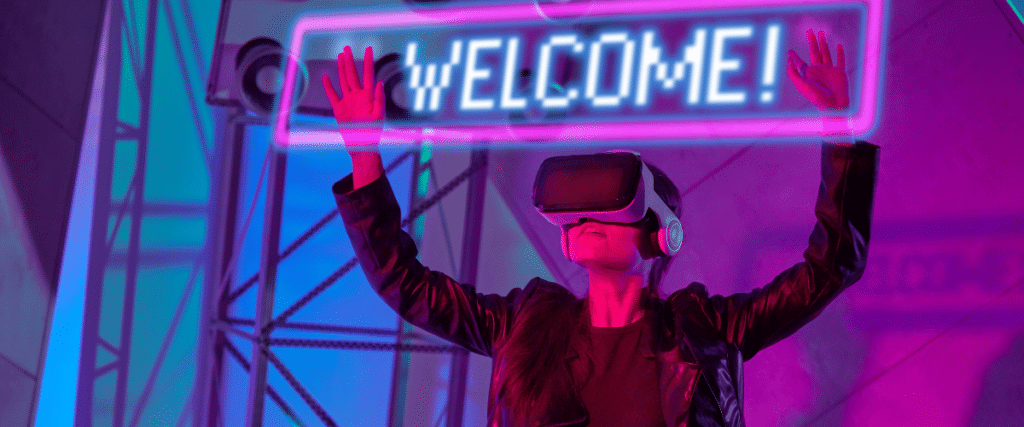Metaverse has become a popular buzzword, and its emerging trends have driven many to explore the realm of virtual reality. The concept is still new for many, bringing in endless possibilities for the future of this technology. Navigate the digital revolution of the Metaverse with Hive Life, and explore what we can expect in 2022.
The term “Metaverse” was first coined by Neal Stephenson in the early 1990s, arising as a cyberpunk concept that depicted the polarisation of virtual reality in a dystopian human world. Paving the way towards the realisation of this concept, the development of augmented reality (AR) and virtual reality (VR), alongside blockchain technology, became the foundation of this hyper-realistic world for individuals to coexist.
Meta (previously known as Facebook) ventured into this evolving tech trend in 2021, further popularising the integration of the virtual space into our physical world- a three-dimensional (3D) digital space for people to connect, network, and create through its technological innovation in VR, AR, and wearable technologies.
As we enter into a new digital revolution era, Metaverse trends have experienced phenomenal growth, creating an immersive virtual reality and collaborative space to synchronise user experiences. This only further emphasises the significance of interoperable network connectivity during these changing times, from human interactions to transactions and data storage taking place on a decentralised network.
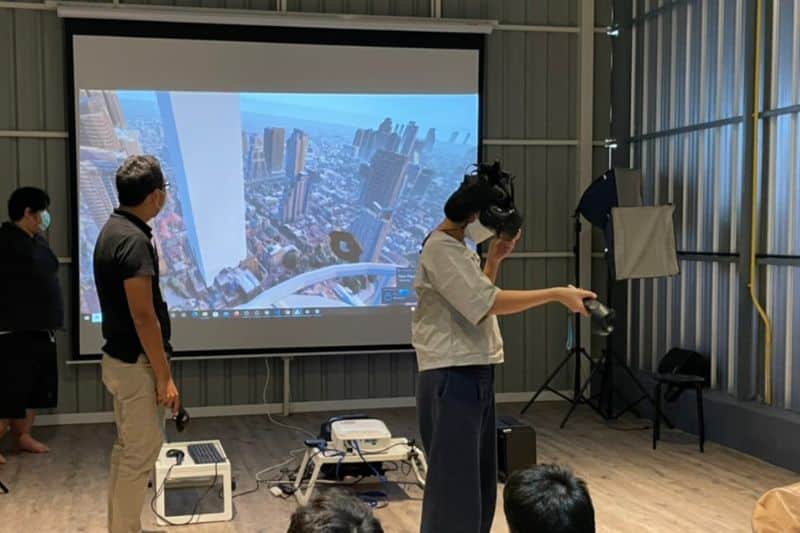
1. Augmented and Virtual Reality in Gaming
3D Technology, AR and VR assemblies, and sonic systems play an integral role in the virtual gaming industry. Amid the rise of the Metaverse, these technologies have witnessed exponential growth, strengthening their valuation and relevance to the current market. According to the International Data Corporation (IDC)’s Quarterly AR/VR Headset Tracker, in 2021, the market for AR and VR headsets increased by 60.8%, the APAC region alone accounting for 2.19 million units in shipment.
The Sandbox, Hong Kong-based futuristic gaming platform, has developed a decentralised virtual world where users can personalise their avatars, innovate, and govern the land, as well as host events and exchange ideas. Within the metaverse, the in-game Ethereum utility token, SAND, is made available for the players to buy and sell digital assets in the form of non-fungible tokens (NFTs). For new gamers looking to traverse into the digital simulation, the shared space facilitates the monetisation of individual virtual experiences.

Another industry leader in the Metaverse In APAC is Axie Infinity, a startup founded in Singapore creating a blockchain community for the breeding and trading of collectable NFT virtual pets, inspiring a similar frenzy to that of Pokémon GO, with a differentiating variable being its digital ecosystem. Players can earn AXS coins through play-to-earn opportunities, such as battling and fulfilling quests in this metaspace.
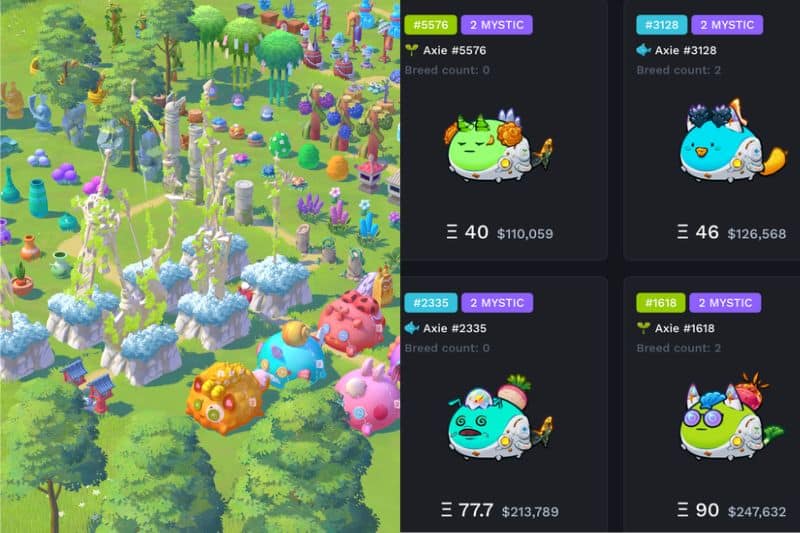
2. Digital Marketplace
The ongoing pandemic has disrupted the traditional brick-and-mortar, and the e-commerce sector witnessing a dramatic rise around this time. With digital transformation underway, retailers and brands are reimagining their businesses and are more favourable to integrating digital tools and technologies in this modern consumeristic age.
The Metaverse is no longer limited to virtual gaming and the tech world. It foresees rapid growth as an innovative digital marketplace, bringing in a myriad of marketing and branding opportunities for fashion and retail spaces, holding the potential to be a sales channel that accelerates consumer experience, engagement, and connectivity.
Many brands have expressed their desire to dive into Web 3.0 while some luxury fashion labels, including Jonathan Simkhai, Ambush, and Nike x RTFKT launched digital wearables.
A premium metaverse marketplace newly founded in Hong Kong, WEAR, has constructed a digital luxury ecosystem for fashion followers, art enthusiasts, and NFT collectors. Featuring exclusive digital collections, ranging from fashion and lifestyle to music, the WEARhouse is accessible through their minted WEARKey.

3. Virtual Art Galleries
The rise of digital art comes as no surprise, considering the growing popularity of NFTs, digital assets, and blockchain technology. Virtual art galleries are labelled amongst the widely adopted industry trends of the Metaverse, as its market worth is posited at US$2.4 billion. Virtual art galleries are a new kind of immersive space where artists and digital creators can showcase their NFT exhibitions for collectors, art fanatics can experience a sensational virtual environment, and even trade their favourites.
Nevertheless, the digital sphere has opened a gateway to infinite possibilities in experiencing and experimenting in art, while the decentralised network ensures intellectual property rights and ownership of each piece.
The Founder of Hong Kong’s de Sarthe, Pascal de Sarthe, expressed interest in navigating virtual art “since COVID-19-induced lockdowns, we increased our online-platform presence and our digital sales have soared. For our clients, it became the new normal.”
Witnessing a shift in the digital art dynamics, the metaspace enables artists to express and indulge in more interactive installations.
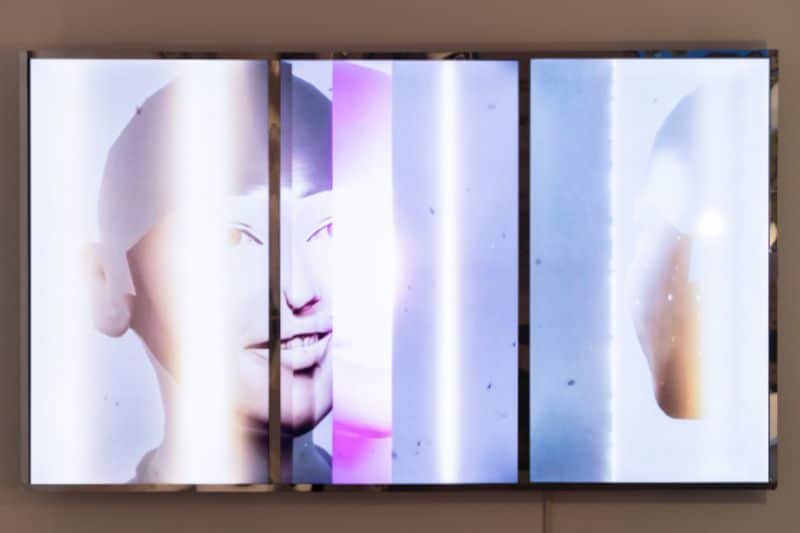
In the Flow of Becoming – An Awakening Art Log by a Fictional AI Artist
4. Digital Real Estate
Virtual real estate trends are breaking physical barriers, having prospered at a rapid speed in the Metaverse- sales of real estate in the digital space surpassed US$500 million in 2021, and are expected to further soar by doubling this year.
Virtual properties are the nuclei of the digital world, where users can connect, create, and cultivate. Digitised land enables owners and creators to monetise on them by allowing access, renting, leasing, and even trading their NFT properties, in a similar process to the physical real estate industry.
Metaverse real estate evidently stimulates a lucrative opportunity and Asian property investors are rushing to utilise this trend. Bangkokverse, a Metaverse platform developed by top Thai 3D creators, has caught the attention of some prominent real-estate developers in the nation, namely AssetWise, Eastern Star Real Estate, Frasers Property (Thailand), and more, believing it could potentially boost occupancy and revolutionise Thailand’s real estate industry.

Hong Kong is meeting the skyrocketing demand for virtual lands, as the digital space becomes a new ground for investments and financing. New World Development (NWD) Chief Executive Adrian Cheng, recently procured the Sandbox’s biggest virtual plot, with ambitions to build a digital hub for the startup networks.

Read more: Regal Hotels Group Builds a Green Metaverse Metropolis
5. Social Networking Space
The Metaverse has undoubtedly unfolded its prospects of becoming the next big social networking space. Within its simulation of realities, users can network and socialise through immersive virtual experiences, without revealing any vital information, such as their photographs, identities, location, and more.
Asian investors and developers, caught in a race against time, are looking to foray into the metaspace. Singaporean real estate giant, Millennium Hotels and Resorts, expressed their plan to launch a virtual hotel in Decentraland. In their Metaverse platform, visitors are free to explore the virtual hotel while interacting with fellow avatars.

Founded in Singapore, 3D social networking space, BUD, reignites technological innovation, as one of the biggest Metaverse user-generated content (UGC) platforms. Designed for Generation Z, the concept is still in its early stages. Risa Feng, the Co-founder of the startup stated “it plans to host virtual games, characters, and non-player characters (NPC),” which will facilitate community networking and development within its social space.
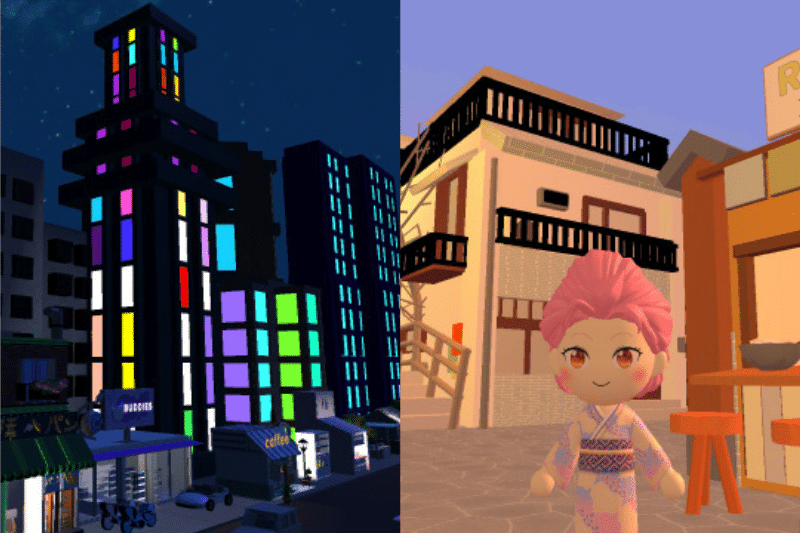
The Metaverse offers transformative ways to engage and connect beyond the limitations posed by the physical realm, creating many opportunities and paving the way for growth, competition, and the future of how we communicate.
Related Articles
Art Revolution: The Digital Metamorphosis of the Art World
